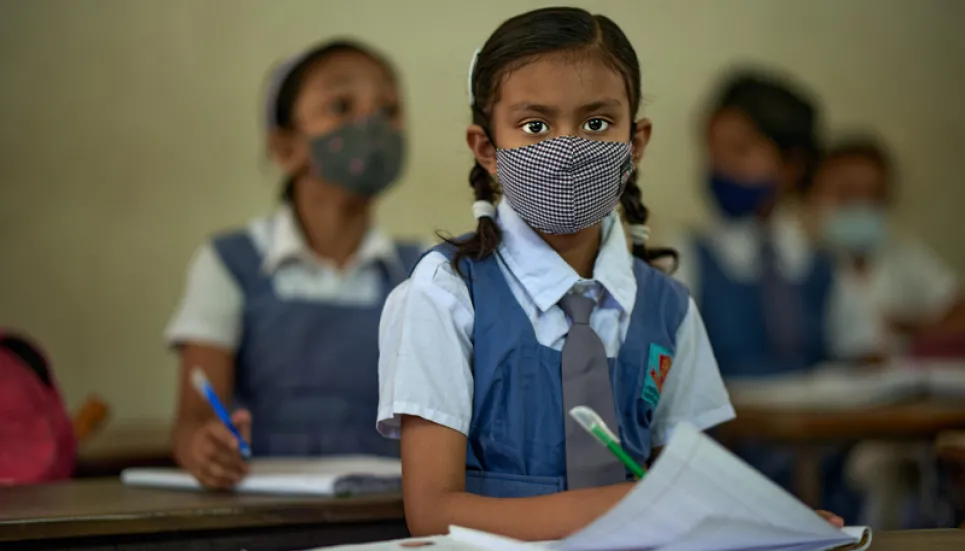
The education of 37 million children in Bangladesh has been disrupted due to school closures since the start of the Covid-19 pandemic in early 2020, according to a UNICEF and UNESCO report.
The report, ‘Situation Analysis on the Effects and Responses to Covid-19 on the Education Sector in Asia’ (SitAn Report), released Tuesday, said the education of about 800 million children in Asia, including South Asia, Southeast Asia and East Asia are also affected by the pandemic.
The Report highlights the continued impact of the pandemic on children’s education and features various regional government’s programmes and initiatives to respond to it.
At a time of the year when children traditionally should have returned to school from annual holidays, the report urges governments to reopen schools as soon as it is safe to do so.
In some countries, for example, the Philippines, schools have been closed throughout the entire pandemic to date, leaving an estimated 27 million students in pre-primary to secondary education without any in-person learning, a continuous period running from early 2020 to the present for over a year and counting.
In Bangladesh, schools were closed throughout the entire pandemic until 12 September, when they reopened again.
Even now, as the world enters the last quarter of 2021, many children are facing an unprecedented second year of school closures as new variants of the coronavirus spread across the region.
The associated consequences of such continuous school closures are staggering and include learning loss; mental distress; missed school meals and routine vaccinations; heightened risk of drop out of structured education; increased, child labour; and increased child marriage.
Many of these dire consequences are already affecting countless children, and many will continue to be felt in the years to come.
“We cannot overlook the impact that the disruption of education services has had on children, particularly the most vulnerable. When schools remain closed, children miss out on the biggest opportunity to learn and develop to their full potential,” stated Marcoluigi Corsi, UNICEF Regional Director a.i. for East Asia and Pacific.
“The future of an entire generation is at stake; therefore, we need every effort to ensure a safe reopening of schools as soon as possible. Otherwise, the learning loss will be difficult to overcome,” he said.
While countries across Asia are taking actions to provide students with distance learning, a UNICEF-supported study by the Campaign for Popular Education (CAMPE) showed that two out of three pre-primary to upper secondary students in Bangladesh, were not reached through remote education during pandemic school closures.
In addition to the lack of material assets and support to access technology, other significant obstacles that prevent disadvantaged children, and many girls, from accessing distance learning during these difficult times include a generally poor learning environment, an increase in pressure to take up domestic household chores and being forced to work outside the home.
This is why the report underscores the importance of delivering equitable and inclusive distance learning at scale to reach all children during full or partial school closures, while providing a package of support to ensure children’s health, nutrition and wellbeing.
It also calls on governments and partners to strengthen teaching and teacher support, so as to address current low levels of learning and help narrow the learning divide, and protect and preserve education funding.
“With schools now open in Bangladesh after an 18-month closure, we must spare no effort to rapidly put in place mechanisms that help children catch-up, keeping a particular focus on the most disadvantaged children,” said Sheldon Yett, UNICEF Representative to Bangladesh.
“Now is the time to invest, to strengthen the education system, and to bridge digital inequalities,” Sheldon said.
Unless mitigation measures are swiftly implemented, the Asian Development Bank (ADB) estimates an economic loss of $1.25 trillion for Asia, which is equivalent to 5.4 per cent of the region’s 2020 gross domestic product (GDP).
Existing evidence shows that the cost of addressing learning gaps are lower and more effective when they are tackled early on in a crisis, and that ongoing investments made in education will support economic recovery, growth and prosperity.